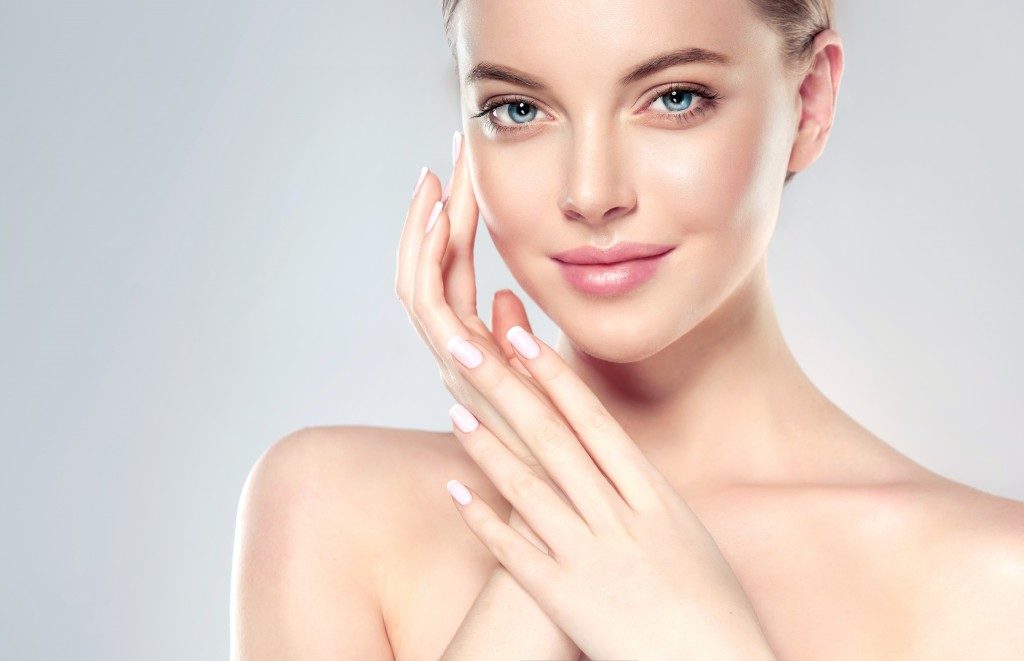Ginger is a staple in Ayurvedic medicine and has a history of medicinal use all over Asia. It is commonly taken orally to remedy all sorts of medical ailments, including high blood pressure and gastrointestinal issues like diarrhea, dyspepsia, and ulcers. Studies also suggest that gingerol, or ginger oil extract, improves insulin sensitivity and reduces fasting blood sugar levels of people with Type 2 Diabetes.
The potency of ginger extract is strong enough that topical application could relieve people of several common ailments.
Topical Uses of Ginger
Whether sliced, juiced or crushed, ginger applied directly on problem areas of the body can provide these benefits:
1. Reduce inflammation – Ginger contains compounds that inhibit cyclooxygenase and five-lipooxygenase, enzymes that aggravate inflammation.
2. Fight bacteria and viruses – Ginger contains 64 sesquiterpenes, chemical compounds with anti-microbial properties and can fight rhinoviruses (the cause of the common cold).
3. Relieve pain – As pain is a common side effect of inflammation and bacterial infection, it is also one of the ailments that ginger extracts can alleviate. Rubbing raw ginger on the skin produces a tingling sensation similar to applying menthol and pain relief creams on joints and muscle areas.
These medical benefits also do wonders for the skin. As the body’s primary defense against heat, cold, bacteria, injury, and water loss, the skin is prone to wounding and infection, and ginger is viable as a first-aid treatment for these injuries.
Skin Care Applications
Raw ginger or ginger-infused body oils and skin care products may provide the following benefits:
- Anti-Acne – The antiseptic and anti-inflammatory qualities of ginger makes it a potent ingredient in natural treatments for acne. It brings down inflammation while fighting its root cause: a bacterial infection. Ginger extract is easy enough to apply, but in its absence, people can use ginger powder instead. Mixing it with apple cider vinegar (another natural ingredient with anti-bacterial properties) can make ginger powder more potent.
- Anti-Aging – Research suggests that the anti-oxidants in ginger extract inhibits oxidative stress (a form of cellular aging) and reduces the formation of wrinkles and stretch marks. Gingerol could also inhibit melanin synthesis. In other words, ginger could help lighten the skin and reduce pigmentation and discoloration.
- Skin Firming – Anyone who’s held sliced ginger in their hands would know that it has a warming and stimulating effect. Ginger contains vasodilators which expand the blood vessels, allowing blood to flow more smoothly without restrictions. Proper blood circulation has a positive impact on the skin as it gives skin cells adequate oxygen supply and promotes fast cellular repair and regeneration. Studies also suggest that ginger significantly reduces body fat by stimulating caloric burn. Keeping body fat in check is one way to prevent skin sagging, especially as people advance in years.

- Wound Treatment – Ginger cleans and heals minor cuts the same way as it does pimples and acne: by combating bacteria and reducing swelling while boosting collagen production to fast-track the body’s natural ability to repair skin. An early study also provided evidence that ginger extract, along with curcumin, could help atrophic skin heal faster than usual.
Ginger may not be as popular a skin care ingredient as aloe vera, honey, or lemon juice, but it doesn’t remove the fact that it does offer plenty of benefits. Incorporating ginger into one’s daily diet and using ginger-infused skin care products could help keep the skin looking young and healthy.

